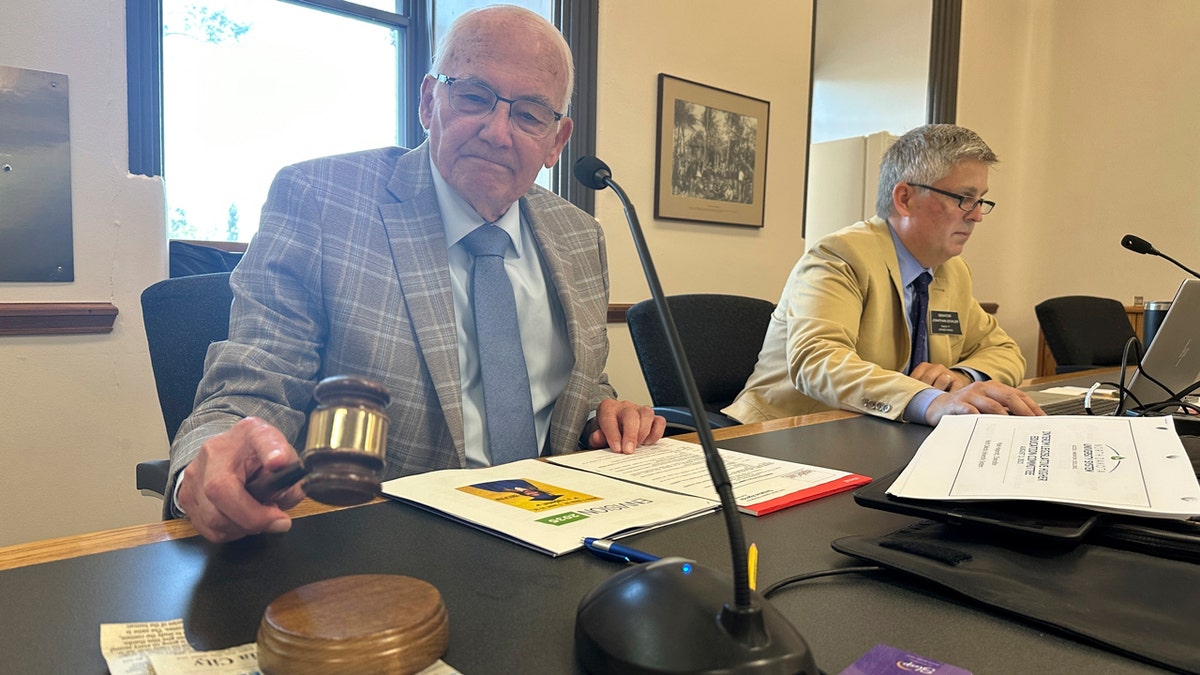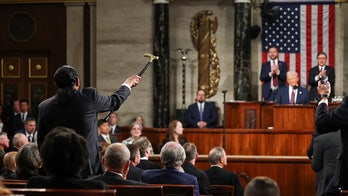Fox News Flash top headlines for August 3
Fox News Flash top headlines are here. Check out what's clicking on Foxnews.com.
- North Dakota lawmakers and education officials are examining potential responses to Minnesota's North Star Promise program.
- North Star Promise subsidized income-based free college tuition.
- Roughly 1,400 Minnesotans enrolled at eastern North Dakota schools are eligible for their home state's program.
North Dakota lawmakers and higher education leaders are beginning to chart a path for how to respond to neighboring Minnesota's upcoming program that will offer income-based free tuition to thousands of students.
Higher education leaders on Wednesday detailed the situation to an interim legislative panel. A state senator also presented a bill draft proposing a North Dakota program similar to Minnesota's North Star Promise.
North Star Promise takes effect in fall 2024. It will cover undergraduate tuition and fees at the state's public post-secondary schools for Minnesota residents whose family income is under $80,000, after they have used other sources of financial aid.
North Dakota higher education leaders are worried about losing Minnesota students. About 1,400 of them at five eastern North Dakota schools could be eligible for North Star Promise. Minnesotans make up nearly half the student body at North Dakota State University in Fargo, the No. 1 out-of-state choice for first-year Minnesota students.
Legislative staff and higher education officials will work on potential options in response to North Star Promise, said Republican state Rep. Mark Sanford, who chairs the Legislature's interim Higher Education Committee.
Tuition cost is "certainly not the only element" Minnesota students consider in where to go to college, he said. Quality and availability of programs "are important parts of this, too," Sanford said Thursday.
Admissions offices already are recruiting 2024 and 2025 high school graduates.
Marketing "the overall quality" of North Dakota programs to Minnesotans will be key, said North Dakota University System Chancellor Mark Hagerott. He said he's confident current Minnesota students will stick with North Dakota.

Republican state Rep. Mark Sanford, left, gavels at an interim Higher Education Committee, Thursday, Aug. 3, 2023, Bismarck, North Dakota. (AP Photo/Jack Dura)
"The concern is really the new students making decisions, and they and their parents may be confused by what might be a headline and not understanding the total value package, so that's why we need to be sure we get that information out," Hagerott said.
Lawmakers and state officials see higher education as a key component to addressing North Dakota's labor shortage by keeping graduates to fill open jobs.
An estimated 15,000 to 20,000 Minnesota students annually will use North Star Promise. In one scenario, education officials in North Dakota projected an $8.4 million loss in combined tuition and fees just in the first year.
Democratic state Sen. Tim Mathern has pitched a $17 million "Dakota Promise" forgivable student loan program for high school graduates of North Dakota and neighboring states, but "targeted to North Dakota residents," he said.
His proposal, which is in early draft form, would cover undergraduate tuition and fees at North Dakota's 11 public colleges and universities as well as the five tribal colleges. The proposal has the same income limit as North Star Promise.
NORTH DAKOTA INITIATIVE WOULD REQUIRE LAWMAKERS TO BE OUT OF OFFICE BEFORE TURNING 81
Loan recipients would have to live and work in North Dakota for three years after graduation for their loans to be completely forgiven.
"It's a new way for more North Dakotans to afford to go to college, so if five Minnesotans leave, this gives five more North Dakotans the idea to go to college," Mathern said.
His proposal also includes an income tax credit for employers who pay for an employee's tuition.
CLICK HERE TO GET THE FOX NEWS APP
North Dakota's Legislature meets every two years and will convene next in January 2025.














































